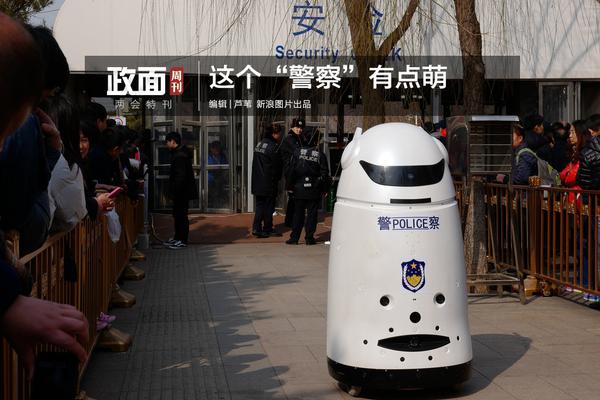
Service portal The total service portal functions should include "registration and login, operation desk, my order, my warehouse, my products, my accounts, supplier information, customer center, signing agreement and message center" and so on.
The basic modules of an SCM supply chain system include raw material management, production management, coding management, warehouse management, distribution management, anti-counterfeiting management, anti-smuffuling management, permission management and other functional modules.Raw material management: including raw material procurement, inspection, raw material traceability, warehousing and suppliers and other modules.
The ERP system mainly includes the following functional modules: supply chain management modules: including procurement, inventory management, inventory control, logistics management, etc.
1. There are customer management subsystem, supplier management subsystem, procurement management subsystem, warehouse management subsystem, etc. Supply chain management system refers to the integration of key business processes and corporate relationships from material suppliers to users in the entire supply chain in order to provide customers with goods, services or information.
2. Supply chain management system is a structured framework and method used to plan, coordinate, execute and monitor supply chain activities within an organization.This system aims to ensure that the supply chain can operate efficiently and meet customer needs, while reducing costs, improving quality and enhancing competitiveness.
3. User-friendly interface: The digital supply chain management system needs to design a user-friendly interface so that users can easily access and use the system. This includes multilingual support, intuitive navigation and easy-to-use reporting functions.

1. Supply chain management system is a structured framework and method for planning, coordinating, executing and monitoring supply chain activities within an organization. This system aims to ensure that the supply chain can operate efficiently and meet customer needs, while reducing costs, improving quality and enhancing competitiveness.
2. Supply chain is the whole process of a product from the purchase of raw materials to the successful sale of products. It can be understood as a chain related to the product. The links of purchasing materials, processing materials and selling products are closely connected by the chain, and each link has a huge relationship with the quality of the product. Contact.
3. Supply chain logistics management refers to a logistics management system centered on the core products or core business of the supply chain.
4. The content and significance of the concept of supply chain management. The ideas and methods of supply chain management have been applied in many enterprises and have made great achievements.
5. Briefly analyze what is a supply chain management system and its importance. Supply chain management system refers to the integration of key business processes and relationships of enterprises in the entire chain from the original material supplier to the end user to provide goods, services or information to end customers.
1. Supply chain management platform is a software system that integrates various supply chain management functions, aiming to coordinate, monitor and optimize the entire supply Chain process.The supply chain management platform usually integrates procurement, production, logistics, inventory management, order processing and other links to improve overall efficiency and transparency.
2. Supply chain management system refers to the integration of key business processes and relationships of enterprises in the entire chain from the original material supplier to the end user to provide goods, services or information to end customers.
3. Supply chain management system is a structured framework and method for planning, coordinating, executing and monitoring supply chain activities within an organization. This system aims to ensure that the supply chain can operate efficiently and meet customer needs, while reducing costs, improving quality and enhancing competitiveness.
4. Supply chain management is mainly to optimize the operation of the supply chain, so that the supply chain can be the whole process from procurement to satisfying the end customer at the lowest cost.
5. Supply Chain Management (SCM) is an all-round enterprise management application software that can help enterprises realize the comprehensive automation of the entire business operation.
Binance wikipedia-APP, download it now, new users will receive a novice gift pack.
Service portal The total service portal functions should include "registration and login, operation desk, my order, my warehouse, my products, my accounts, supplier information, customer center, signing agreement and message center" and so on.
The basic modules of an SCM supply chain system include raw material management, production management, coding management, warehouse management, distribution management, anti-counterfeiting management, anti-smuffuling management, permission management and other functional modules.Raw material management: including raw material procurement, inspection, raw material traceability, warehousing and suppliers and other modules.
The ERP system mainly includes the following functional modules: supply chain management modules: including procurement, inventory management, inventory control, logistics management, etc.
1. There are customer management subsystem, supplier management subsystem, procurement management subsystem, warehouse management subsystem, etc. Supply chain management system refers to the integration of key business processes and corporate relationships from material suppliers to users in the entire supply chain in order to provide customers with goods, services or information.
2. Supply chain management system is a structured framework and method used to plan, coordinate, execute and monitor supply chain activities within an organization.This system aims to ensure that the supply chain can operate efficiently and meet customer needs, while reducing costs, improving quality and enhancing competitiveness.
3. User-friendly interface: The digital supply chain management system needs to design a user-friendly interface so that users can easily access and use the system. This includes multilingual support, intuitive navigation and easy-to-use reporting functions.

1. Supply chain management system is a structured framework and method for planning, coordinating, executing and monitoring supply chain activities within an organization. This system aims to ensure that the supply chain can operate efficiently and meet customer needs, while reducing costs, improving quality and enhancing competitiveness.
2. Supply chain is the whole process of a product from the purchase of raw materials to the successful sale of products. It can be understood as a chain related to the product. The links of purchasing materials, processing materials and selling products are closely connected by the chain, and each link has a huge relationship with the quality of the product. Contact.
3. Supply chain logistics management refers to a logistics management system centered on the core products or core business of the supply chain.
4. The content and significance of the concept of supply chain management. The ideas and methods of supply chain management have been applied in many enterprises and have made great achievements.
5. Briefly analyze what is a supply chain management system and its importance. Supply chain management system refers to the integration of key business processes and relationships of enterprises in the entire chain from the original material supplier to the end user to provide goods, services or information to end customers.
1. Supply chain management platform is a software system that integrates various supply chain management functions, aiming to coordinate, monitor and optimize the entire supply Chain process.The supply chain management platform usually integrates procurement, production, logistics, inventory management, order processing and other links to improve overall efficiency and transparency.
2. Supply chain management system refers to the integration of key business processes and relationships of enterprises in the entire chain from the original material supplier to the end user to provide goods, services or information to end customers.
3. Supply chain management system is a structured framework and method for planning, coordinating, executing and monitoring supply chain activities within an organization. This system aims to ensure that the supply chain can operate efficiently and meet customer needs, while reducing costs, improving quality and enhancing competitiveness.
4. Supply chain management is mainly to optimize the operation of the supply chain, so that the supply chain can be the whole process from procurement to satisfying the end customer at the lowest cost.
5. Supply Chain Management (SCM) is an all-round enterprise management application software that can help enterprises realize the comprehensive automation of the entire business operation.
 OKX Wallet app download for Android
OKX Wallet app download for Android
391.71MB
Check OKX Wallet app
OKX Wallet app
427.46MB
Check Binance login App
Binance login App
511.94MB
Check OKX Wallet
OKX Wallet
489.62MB
Check Binance wallet
Binance wallet
233.64MB
Check Binance app
Binance app
855.47MB
Check Binance download
Binance download
794.79MB
Check OKX download
OKX download
619.64MB
Check Binance download Android
Binance download Android
971.15MB
Check Binance download
Binance download
237.84MB
Check okx.com login
okx.com login
945.95MB
Check OKX Wallet apk download
OKX Wallet apk download
819.94MB
Check Binance app
Binance app
227.27MB
Check Binance app
Binance app
226.64MB
Check Binance Download for PC Windows 10
Binance Download for PC Windows 10
647.78MB
Check Binance app
Binance app
224.59MB
Check Binance APK
Binance APK
179.93MB
Check Binance market
Binance market
139.52MB
Check Binance login App
Binance login App
155.24MB
Check OKX app
OKX app
785.22MB
Check OKX review
OKX review
744.12MB
Check Binance download
Binance download
361.85MB
Check Binance app
Binance app
531.94MB
Check Binance download APK
Binance download APK
752.14MB
Check OKX review
OKX review
752.66MB
Check Binance download
Binance download
225.61MB
Check Binance download APK
Binance download APK
761.82MB
Check Binance app download Play Store
Binance app download Play Store
672.32MB
Check OKX Wallet apk download latest version
OKX Wallet apk download latest version
996.86MB
Check Binance download
Binance download
742.39MB
Check OKX Wallet apk download
OKX Wallet apk download
512.83MB
Check Binance login
Binance login
642.45MB
Check OKX review
OKX review
664.95MB
Check Okx app download
Okx app download
794.54MB
Check Binance wikipedia
Binance wikipedia
436.35MB
Check OKX download
OKX download
138.61MB
Check
Scan to install
Binance wikipedia to discover more
Netizen comments More
103 合浦珠还网
2025-02-08 03:30 recommend
1158 严阵以待网
2025-02-08 03:15 recommend
2400 烟波浩渺网
2025-02-08 02:03 recommend
1371 直捣黄龙网
2025-02-08 01:13 recommend
2546 顿口无言网
2025-02-08 01:04 recommend